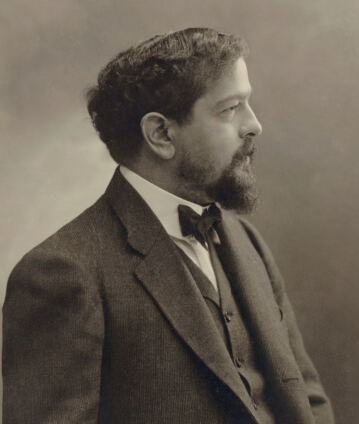Claude Debussy
composer
Claude Debussy, probably the leading composer of French Modernism, found his individual tonal language relatively late. Although he stood out early on as a gifted pianist and won the prestigious Prix de Rome early in his composing career, the tone poem Prélude à l’après-midi d’un faune, completed at the age of 30, is considered his first masterpiece. The complicated path to his own idiom was related to his self-imposed aspirations: Debussy was aiming for a genuinely French form of expression that was not directly linked to the Romanticism of his homeland or to the German-Austrian tradition.
Debussy put together an unusual gallery of role models for himself: he preferred the elegance of Mozart to the stately rhetoric of Beethoven, the refinement of the French Baroque to the monumentality of Berlioz, and the academically unsophisticated expression of Mussorgsky to the theatricality of Wagner. He was also inspired by Erik Satie, by Javanese gamelan music, which he discovered at the Paris World Exhibition, and later by American jazz. The renunciation of immediately recognisable formal progressions in favour of the mood of a moment led to Debussy being labelled an “Impressionist” – although he himself rejected this term for his music. The treatment of language in the vocal works, in which the composer drew on the best in French poetry, was revolutionary. Equally influential were his discoveries in playing techniques and timbres in the piano pieces. Among his few works for large orchestra, the tone poem La Mer stands out, which chief conductor Kirill Petrenko included in the Berliner Philharmoniker’s programme for the 2022/23 season. Some of Debussy’s works remained fragments: of a series of opera projects, he was only able to complete his setting of Maeterlinck’s Pelléas et Mélisande. Claude Debussy remained a seeker – even as a master of his art.